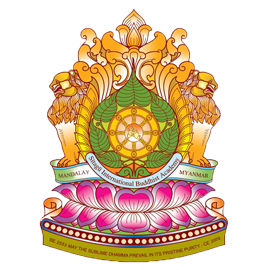Academic Article
Clinging (Upadāna) of Dependent Origination (Paṭiccasamuppāda): A Conceptual Analysis in Suttanta and Abhidhamma
- Title
- Clinging (Upadāna) of Dependent Origination (Paṭiccasamuppāda): A Conceptual Analysis in Suttanta and Abhidhamma
- Author
- Ashin Jotika
- Level
- PhD
- Class
- Research Student
- Type
- Research Paper
- Format
- Language
- English
- Subject
- Buddhist Studies
- Date
- 2024
- Place
- Mandalay
- Publisher
- Sitagu Buddhist Academy Mandalay
- Rights Holder
- Sitagu Buddhist Academy Mandalay
- Abstract
-
The doctrine of Dependent Origination (DO) is one of the most fundamental teachings of the Buddha. Its principle explains that what exists is not some kind of permanent entity like individual, being, spirit, or atta, but only the process of mental and material phenomena, which are dependent on and interrelated with one another, and are constantly arising and falling away. In the Abhidhamma Piṭaka, DO is fully elaborated in the Paṭiccasamuppāda.vibhaṅga (PV) covering the two analyses: Suttanta and Abhidhamma. Generally, Suttanta analysis of PV focuses on the working process of causality embodied as the existence of a being passing through from one life to another, which can be considered as linked to three time periods: past, present and future. However, in Abhidhamma analysis, DO is interestingly examined within a single moment of consciousness (cittakkhaṇa). To the best of my knowledge, the Abhidhamma analysis of DO within a single mind moment has not been examined by contemporary scholars of Buddhism. Therefore, the present paper will discuss both analyses of PV based on a case study of clinging (upādāna), the most complicated factor of DO, supplying it with the perspective of the laws of conditional relations (Paṭṭhāna).
Keywords: Dependent Origination (DO), Paṭiccasamuppāda.vibhaṅga (PV), Suttanta analysis, Abhidhamma analysis, clinging (upādāna), conditional relations (Paṭṭhāna).
- Item sets
- SBAM 4th Annual Seminar Proceedings 2024
Position: 425 (3 views)
